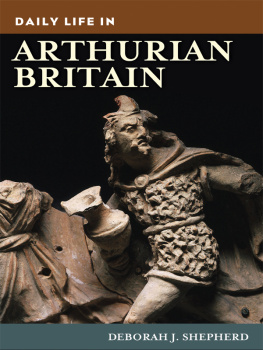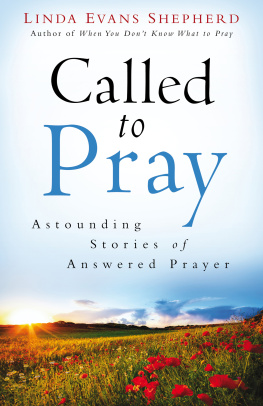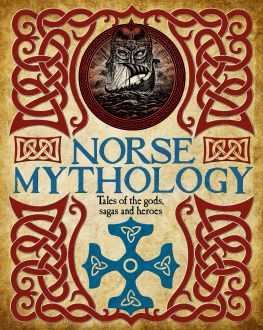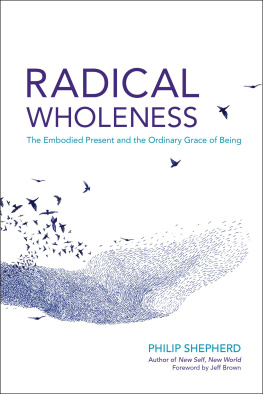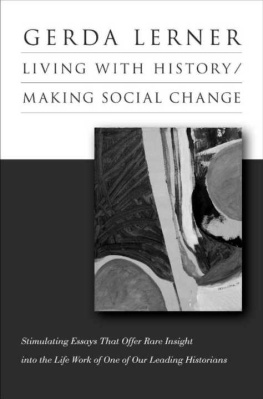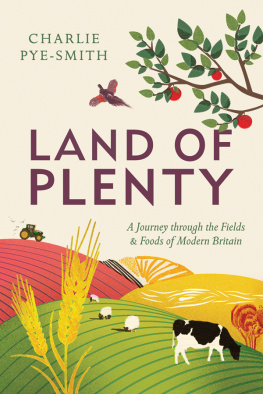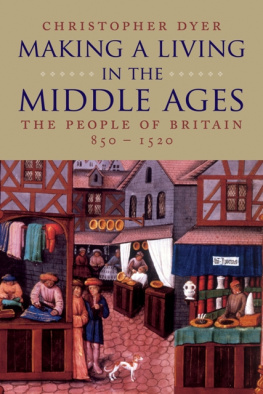Shepherd - Daily Life in Arthurian Britain
Here you can read online Shepherd - Daily Life in Arthurian Britain full text of the book (entire story) in english for free. Download pdf and epub, get meaning, cover and reviews about this ebook. City: Great Britain, year: 2013, publisher: ABC-CLIO;Greenwood, genre: Religion. Description of the work, (preface) as well as reviews are available. Best literature library LitArk.com created for fans of good reading and offers a wide selection of genres:
Romance novel
Science fiction
Adventure
Detective
Science
History
Home and family
Prose
Art
Politics
Computer
Non-fiction
Religion
Business
Children
Humor
Choose a favorite category and find really read worthwhile books. Enjoy immersion in the world of imagination, feel the emotions of the characters or learn something new for yourself, make an fascinating discovery.
Daily Life in Arthurian Britain: summary, description and annotation
We offer to read an annotation, description, summary or preface (depends on what the author of the book "Daily Life in Arthurian Britain" wrote himself). If you haven't found the necessary information about the book — write in the comments, we will try to find it.
Daily Life in Arthurian Britain — read online for free the complete book (whole text) full work
Below is the text of the book, divided by pages. System saving the place of the last page read, allows you to conveniently read the book "Daily Life in Arthurian Britain" online for free, without having to search again every time where you left off. Put a bookmark, and you can go to the page where you finished reading at any time.
Font size:
Interval:
Bookmark:

DAILY LIFE IN
ARTHURIAN BRITAIN
Recent Titles in
The Greenwood Press Daily Life Through History Series
The Progressive Era
Steven L. Piott
Women during the Civil Rights Era
Danelle Moon
Colonial Latin America
Ann Jefferson and Paul Lokken
The Ottoman Empire
Mehrdad Kia
Pirates
David F. Marley
Arab Americans in the 21st Century
Anan Ameri and Holly Arida, Editors
African American Migrations
Kimberley L. Phillips
The Salem Witch Trials
K. David Goss
Behind the Iron Curtain
Jim Willis
Trade: Buying and Selling in World History
James M. Anderson
The Colonial South
John Schlotterbeck
A Medieval Monastery
Sherri Olson
DAILY LIFE IN
ARTHURIAN BRITAIN
DEBORAH J. SHEPHERD
The Greenwood Press Daily Life Through History Series

AN IMPRINT OF ABC-CLIO, LLC
Santa Barbara, California Denver, Colorado Oxford, England
Copyright 2013 by Deborah J. Shepherd
All rights reserved. No part of this publication may be reproduced, stored in a retrieval system, or transmitted, in any form or by any means, electronic, mechanical, photocopying, recording, or otherwise, except for the inclusion of brief quotations in a review, without prior permission in writing from the publisher.
Library of Congress Cataloging-in-Publication Data
Shepherd, Deborah J.
Daily life in Arthurian Britain / Deborah J. Shepherd.
pages cm. (The Greenwood Press daily life through history series)
Includes bibliographical references and index.
ISBN 978-0-313-33295-1 (hardcopy : acid-free paper) ISBN 978-0-313-03852-5 (ebook) 1. Anglo-SaxonsSocial life and customs. 2. Great BritainHistoryAnglo-Saxon period, 4491066. 3. Great BritainSocial life and customsTo 1066. I. Title.
DA152.2.S528 2013
942.014--dc23 2013011677
ISBN: 978-0-313-33295-1
EISBN: 978-0-313-03852-5
17 16 15 14 13 1 2 3 4 5
This book is also available on the World Wide Web as an eBook.
Visit www.abc-clio.com for details.
Greenwood
An Imprint of ABC-CLIO, LLC
ABC-CLIO, LLC
130 Cremona Drive, P.O. Box 1911
Santa Barbara, California 93116-1911
This book is printed on acid-free paper 
Manufactured in the United States of America
CONTENTS
INTRODUCTION
King Arthur is the stuff of legend. In the popular imagination, he is a high medieval knight and ruler, living in a fantasy castle with many spectacularly armored knights in his retinue. Arthur is the king of all the Britonsor all England, depending on the storytellerbut while he rules his people with justice, he is also the authority figure behind the legendary heroes who set off on quests to save distant maidens and seek after impossible prizes. Much of Arthurian legend deals with these heroic quests and romantic encounters, ignoring the mundane matters of real kingship. Some of the romance turns dark with magical entanglements or the illicit desires of Lancelot and Arthurs wayward queen, Guinevere. Merlin, Arthurs teacher and magical advisor, is defeated by a powerful female force. Womens reputations do not always fare well in Arthurian legend. Be that as it may, very few of these later tales concocted by medieval storytellers, many originating in France and other countries, resemble either English history or daily life.
The real Arthur, if such a man existed, would have been nothing like this. Historians have agonized for generations over the question of Arthurs existence, and the mystery is unlikely to be solved. Only an array of contemporary historians giving eyewitness accounts of Arthurs deeds would verify his existence to our now skeptical minds, yet we have not found one reliable contemporary source, let alone an array. This is partly because a real Arthur would have been active during the fifth centurythat is, after the year 410, when Roman authority withdrew from Britainand he would have lived in a land experiencing numerous political and economic upheavals while at the same time also under assault by external enemies. Few people, if any, holding living memories of those times had the leisure or the ability to write their stories down. Even if such writing had occurred, the many subsequent years of turmoil would have made its survival unlikely. Any surviving text would have had to be safely stored and cared for in archives in order to be read in our own century. More likely, we would only know of this text if some scribe in a later century had taken the trouble to make a new copy of it. Some early medieval texts rescued from the decay of old age were copied and recopied many times over during the intervening centuries, but only if they were thought important. These have survived down to the present day.
Many texts were not so fortunate. Consequently, the only known narrative of British life and circumstances written soon after the Romans departed comes from a work written several generations later by Gildas, a learned cleric of the Church. Gildas made clear his disgust and anger over the behavior and motivations of the earlier Britons who he felt had greedily rejected the good and lawful Roman rule they had been honored to receive in exchange for a chance to grab power for themselves. He was in no mood to glorify any British heroes, and if he mentioned earlier leaders by name, it was only to vilify them for their criminal deeds and evil choices. Some modern reviewers have suggested that Gildas, whose resentment of early British leaders was clear, knew of Arthur but hated him so much for his unlawful deeds that he deliberately left out all mention of his name. Perhaps this is modern wishful thinking: if only Gildas had written down that one name.
So the Arthur who intrigues us lived, if at all, at the beginning of this shadowy and turbulent time of the fifth and sixth centuries. He may as well be a legend like his later, more glamorous, manifestation because his post-Roman existence cannot be proven. Ironically, he is, or would be, a full 800 years older than the vision projected in the popular legends of late medieval and modern times. Why this confusion? How can the legendary Arthur be eight centuries younger than the real Arthur?
Part of the answer lies in this far earlier time when Britons were in need of real, living heroes. Contrary to Gildass view, bad British behavior bore only part of the blame for the departure of the Romans, though how large a part can be debated. Rome was beset on all sides by enemies, including rebellious armies from Britain, and needed to use its troops and administrators stationed in Britain to more urgent purposes. Although seemingly confident at first of their ability to self-govern, the Britons efforts to survive on their own after separation from the Roman Empire failed within a generation or two. The Anglo-Saxons arrived and ultimately dominated most of British territory. Britons fled to other lands, moved to remote western and northern reaches of Britain, or merged with the Anglo-Saxon people through marriage and by adopting the Germanic culture. The Britons who settled in the western and southern territories of Wales and Cornwall remembered their losses and, using fragments of collective memory, nurtured a vision of a British hero who had almost defeated the invaders. The vision of Arthur appears to be comprised of true and embellished stories about many men and women, stories that were gathered together into an oral tradition of one great hero, valiant and victorious in battle, who in his time could beat back the enemies of the Britons and preserve their land and freedom. There was even a promise that he would return to do the same again one future day. As Viking and Norman invaders arrived in later centuries, belief in a returning hero became even more compelling. The core vision of a once great king of England remained the hopeful story of a time when the Britons were victorious over their enemies and might be again someday.
Next pageFont size:
Interval:
Bookmark:
Similar books «Daily Life in Arthurian Britain»
Look at similar books to Daily Life in Arthurian Britain. We have selected literature similar in name and meaning in the hope of providing readers with more options to find new, interesting, not yet read works.
Discussion, reviews of the book Daily Life in Arthurian Britain and just readers' own opinions. Leave your comments, write what you think about the work, its meaning or the main characters. Specify what exactly you liked and what you didn't like, and why you think so.

